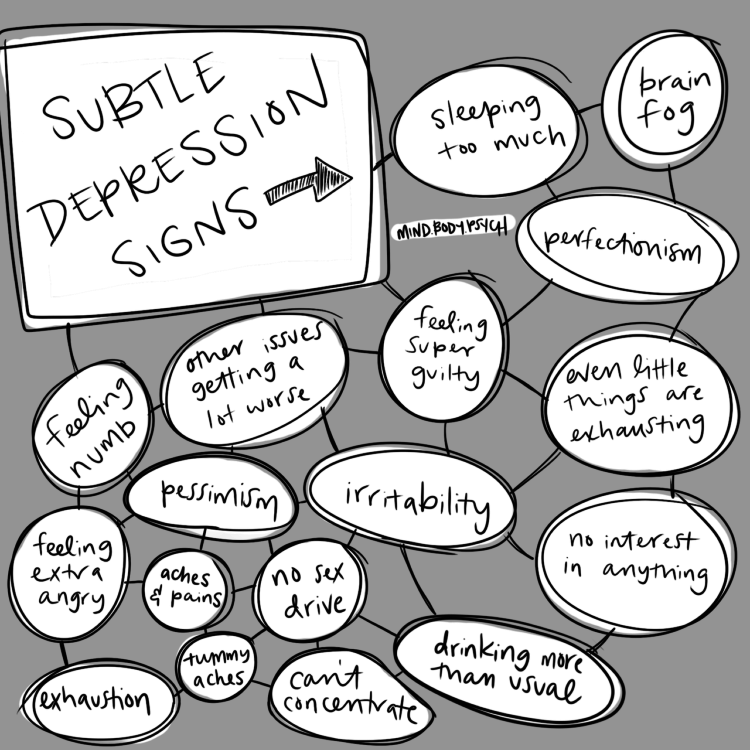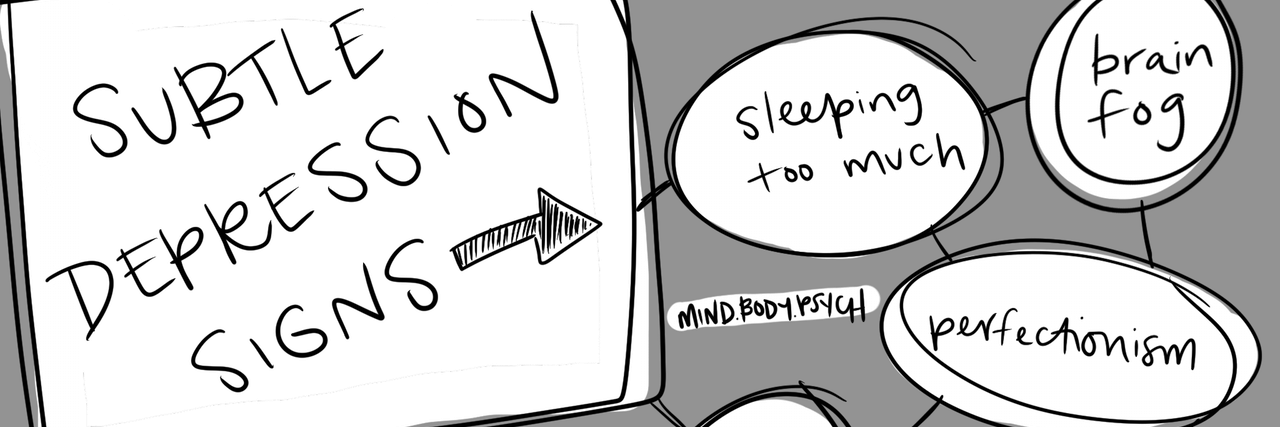Depression can be cyclical: it comes and goes in waves. According to the Anxiety and Depression Association of America, it is estimated that about 6.7% of the U.S. population experiences at least one major depressive episode in any given year. Knowing which symptoms you experience at the onset of a depressive period can be so helpful.
Despite what most people think, depression is very different than normal mood fluctuations and sadness. It can actually make it hard to do everyday things. Getting out of bed in the morning, showering, keeping up with work or school and socializing become utterly exhausting. Some might experience hopelessness and suicidal thoughts. It can derail your functioning and your life. These episodes can hit you like a freight train and leave you scrambling for cover.
But sometimes depression comes on slowly with more subtle symptoms.
Recognizing these symptoms can give you the time and space to start building some shelter to weather the coming storm. I made a graphic (featured below) to help explain what more subtle signs of depression might look like:

For example, some people experience extreme fatigue during a depressive episode. In the beginning, this may show up sneakily.
It may begin as just needing naps every day in the afternoon when that is not your normal.
It could be that you can normally work on that project for a couple hours at a time, but lately even one hour of focus exhausts you.
Those with other conditions may notice they get more difficult to deal with during episodes.
Chronic pain can become harder to cope with suddenly.
Other aches and pains might show up for no obvious reason.
Your once pleasurable and abundant sex life might sound like too much work, too much intimacy, with not enough energy.
One that not many people acknowledge is risky behavior and recklessness.
When I am beginning to feel depressed, I might start drinking more than usual to compensate for my low mood or low self-esteem or to make social outings feel easier. I might smoke more, party more, gamble, (i.e. use all of my unhealthy coping skills to distract or ease the feelings).
It’s so important to pay attention to when you feel “off.”
You are the expert of your experience.
You know what is “normal” for you.
While you can have any of these symptoms and not have depression, if you do have depression and notice multiple of these things creeping in, it may be time to reach out for some support, use your coping skills and start implementing your behavioral strategies.
Sneaky depressive symptoms are important. Don’t ignore them!
If you, like many, have depression that manifests more subtly, I want to remind you of a few things!
- Your pain is valid.
- You deserve help.
- Being “high-functioning” does not invalidate what you’re going through.
- You are strong and brave.
- You got this!
To see more from Jackie, follow her on Instagram: @mind.body.psych.
Image by Jackie Guidici

